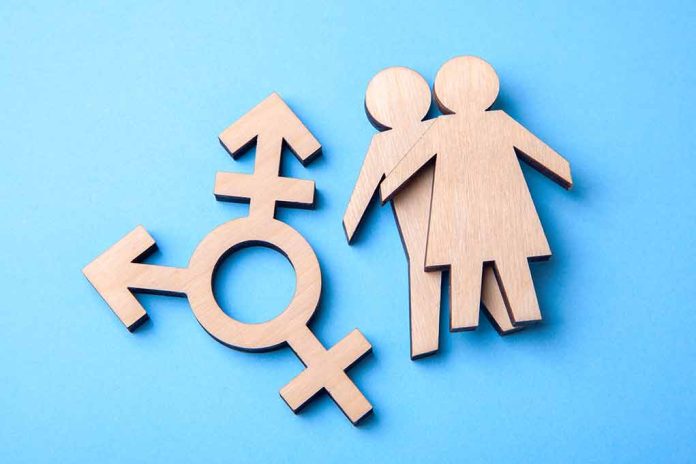
The debate over transgender athletes in women’s sports continues to generate headlines as institutions grapple with policy changes aiming for fairness and inclusion.
Key Takeaways
- The NCAA’s 2025 policy dictates that student-athletes assigned male at birth cannot compete on NCAA Women’s Teams.
- President Trump’s executive order banned biological males from competing in women’s sports at public schools and universities.
- The NCAA updated its policies following the federal order to align with new standards.
- A bill to prevent transgender women from participating in female school sports failed to advance in the Senate.
- PragerU campaigns for legislation to ensure equitable opportunities for cisgender women athletes.
NCAA Changes Focus on Fair Competition
The NCAA’s new policy, effective February 6, 2025, establishes guidelines for transgender athletes in gender-segregated sports. The policy decision demands that member schools certify student-athlete eligibility and mandates compliance with existing legislation, which takes precedence over NCAA rules. The certification process does not allow waivers, and the definitions now specify terms, including sex assigned at birth and gender identity, to avoid ambiguity. Transgender athletes assigned male at birth may practice but not participate in women’s sports, reflecting a shift to prioritize biological factors.
The policy covers eligibility for athletic scholarships, stipulating that those assigned male at birth cannot receive scholarships designated for women. Notably, athletes can compete on men’s teams regardless of their sex assigned at birth, provided they meet other criteria. These decisions underscore a commitment to what the NCAA considers fair competition while acknowledging the complex layers of the ongoing debate on gender identity in sports.
The future of transgender youth in athletics
Is EXACTLY the same as it was before…play on the team that matches your sex. Not your gender. Not your furry personality. Not your favorite color. Just your sex. You only have one, & you can’t change it.
— Christina Dalcher (@CV_Dalcher) February 7, 2025
Executive Orders and Legislative Battles
President Trump’s executive order, “Keeping Men Out of Women’s Sports,” signed on February 5, 2025, marked a significant federal intervention. It banned biological males from competing in women’s sports at publicly funded institutions. In response, the NCAA updated its policies to comply with this order, reflecting a shift in federal and sports administration policies toward prioritizing biological sex over gender identity in competitive sports environments.
Despite these developments, legislation aimed at prohibiting transgender women from participating in female school sports was stalled in the U.S. Senate. This bill, requiring 60 votes to advance but gaining only 51 votes, highlights the political divide on this critical issue. The bill proposed strict adherence to birth-assigned reproductive biology in defining Title IX protections, emphasizing fairness across the spectrum of school athletics.
Advocacy and Public Engagement
PragerU and other advocacy organizations remain actively involved in the campaign for maintaining what they perceive as fair play opportunities for cisgender women, invoking public support and education initiatives. With over 800,000 signatures collected on petitions, they underscore the widespread concern and engagement on this topic, seeking legislative and policy measures they believe will protect women’s sports from unfair competition arising from transgender inclusion policies.
The ongoing discourse reflects a broader cultural and political shift, where fairness in women’s sports has become a key issue. As new policies emerge, they continually test the balance between inclusivity and competitive integrity, illustrating the complexities the nation faces in this evolving landscape.


